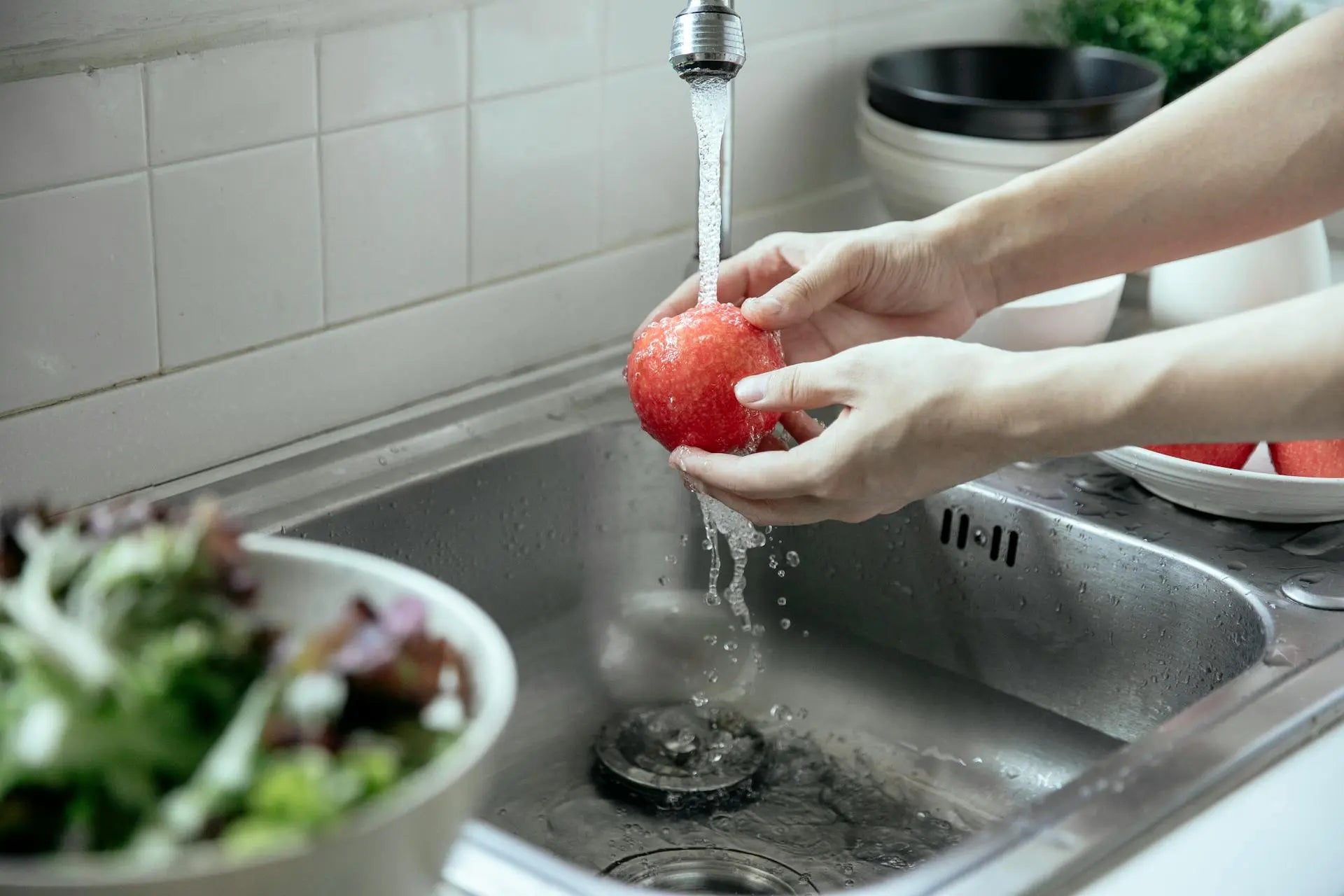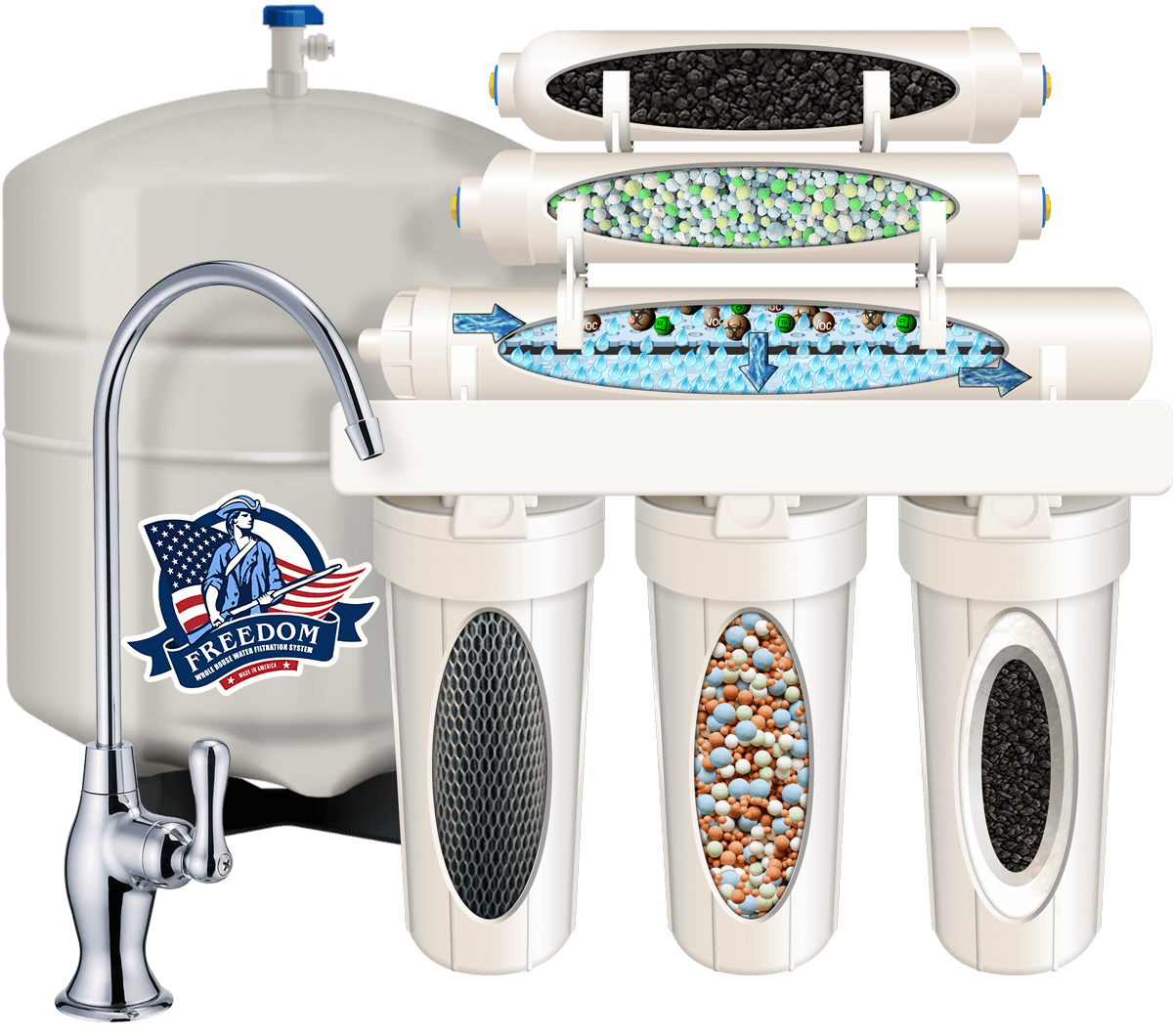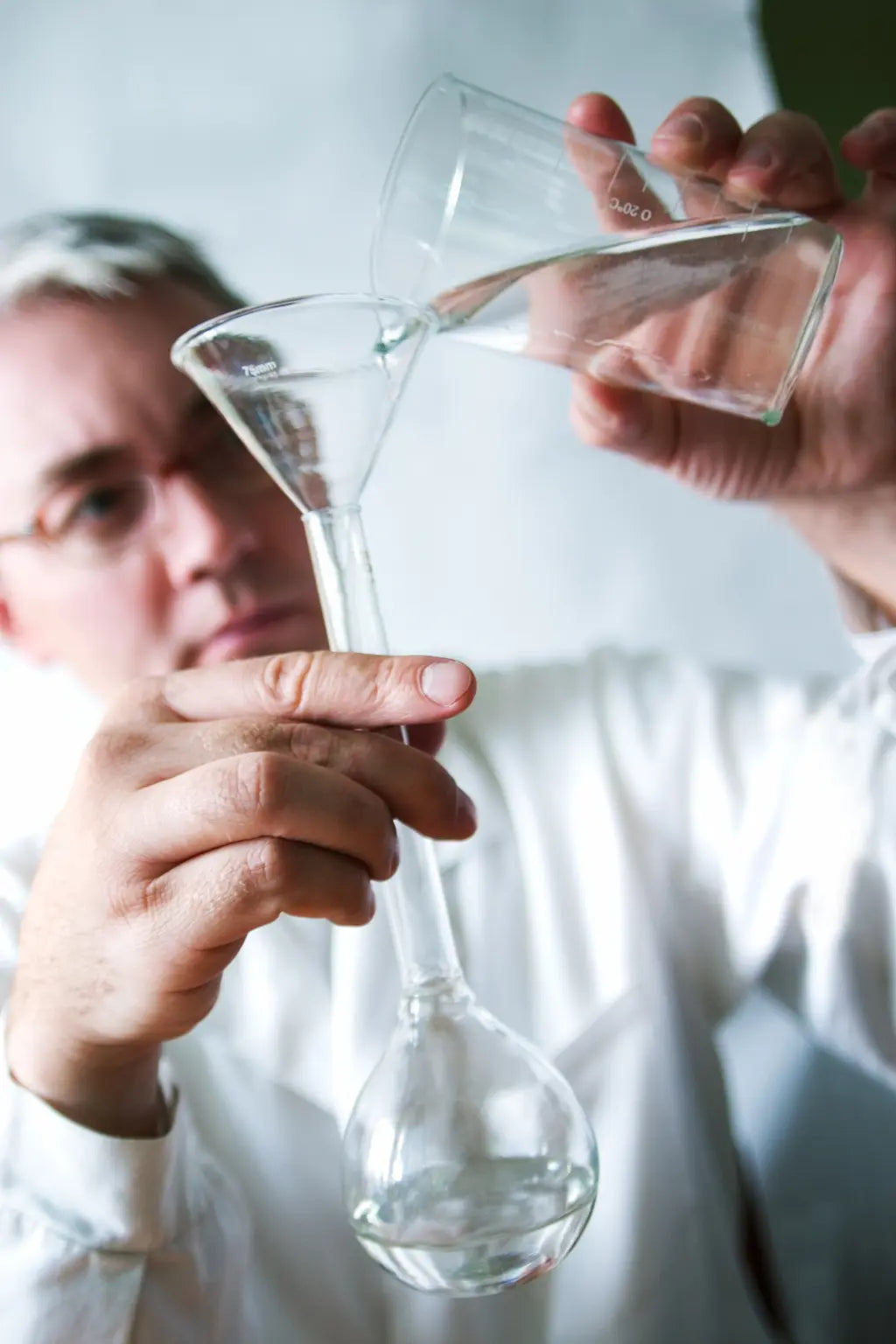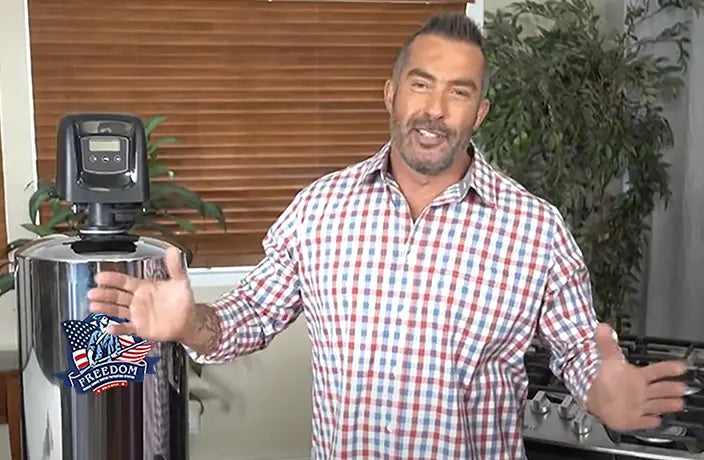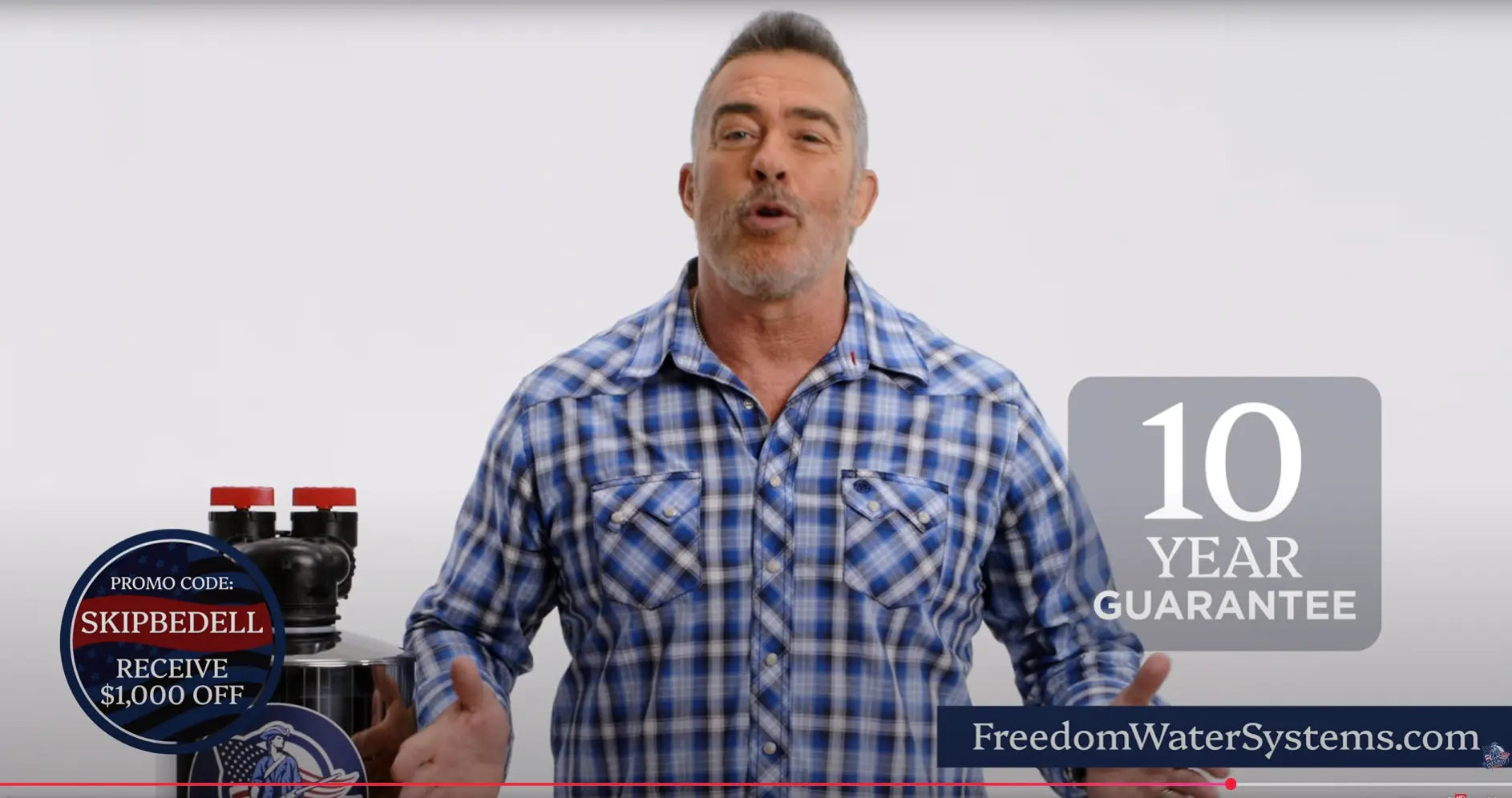
Skip Bedell trusted Freedom Water to protect his family's water. Our same advanced filtration is available for every home - including compact under sink RO systems.
-
Hydro-Pure Tankless Reverse Osmosis Drinking Water SystemOn sale from $780.00
-
(11-Stage) Reverse Osmosis Alkaline w/Quantum Disinfection™Regular price $1,495.00
$1,595.00Sale price
FAQs About Under Sink Reverse Osmosis Systems
What does a reverse osmosis system remove from tap water?
A reverse osmosis (RO) system removes contaminants such as fluoride, PFAS (forever chemicals), lead, chlorine, arsenic, and nitrates. It provides clean, great-tasting water right from your kitchen tap.
Does reverse osmosis remove healthy minerals from water?
Yes, RO filtration removes nearly everything, including some trace minerals. However, the result is ultra-pure, balanced water that is safer and ideal for drinking, cooking, and coffee.
How often do I need to replace the filters in an RO system?
Most reverse osmosis systems need pre and post filters changed once or twice a year, and the RO membrane replaced every 2–3 years, depending on water quality and usage.
Can I use a reverse osmosis system with well or city water?
Yes, RO systems work well with both. For city water, they remove chlorine, fluoride, and chemical residues. For well water, they help reduce heavy metals and other natural contaminants.
How is an under sink reverse osmosis system different from a regular water filter?
Standard filters reduce taste and odor issues, but RO systems use a multi-stage membrane that filters out microscopic impurities and dissolved solids that carbon filters cannot remove.
Why Tap Water Needs Reverse Osmosis Filtration
Even when municipal water meets safety standards, it can still contain trace contaminants that affect taste and quality. An under sink reverse osmosis system is one of the most effective ways to remove impurities and enjoy pure, great tasting drinking water straight from your tap.
✓ Fluoride and PFAS (Forever Chemicals)
Standard carbon filters cannot effectively remove fluoride or PFAS, but reverse osmosis can. The RO membrane blocks these tiny contaminants, giving you cleaner and safer water for your family.
✓ Chlorine and Chloramine
City water is disinfected with chlorine or chloramine, which can cause unpleasant taste and odor. An RO system with a carbon pre filter removes these chemicals before they reach your glass.
✓ Lead and Heavy Metals
Old pipes and plumbing can leach metals like lead, copper, and arsenic into tap water. A reverse osmosis drinking water filter significantly reduces these contaminants to provide safer water at home.
✓ Pharmaceuticals and Chemical Residue
Studies show trace amounts of pharmaceuticals and personal care products in many water supplies. A multi stage RO system helps reduce these residual chemicals for peace of mind.
✓ Nitrates and Dissolved Solids
Fertilizer runoff and dissolved solids can make tap water unsafe or give it a salty taste. The reverse osmosis membrane filters out nitrates and total dissolved solids (TDS), leaving you with cleaner, balanced water.
✓ Taste and Odor Problems
Even treated water can taste or smell off due to chlorine, minerals, or organic compounds. An RO filtration system improves taste, smell, and clarity for better tasting water every day.
How to Improve Your Drinking Water Quality
Adding an under sink reverse osmosis system is one of the simplest and most effective ways to improve your home's drinking water. These compact systems fit neatly under your sink, providing bottle quality water on demand without the waste or cost of single use plastics.
✓ Reverse Osmosis Systems
RO systems remove up to 99 percent of contaminants, including fluoride, lead, arsenic, PFAS, and more. They deliver safe, clean water through a dedicated tap for cooking, coffee, and hydration.
✓ Carbon Pre and Post Filters
Paired with carbon filters, RO systems remove chlorine, chloramine, and volatile organic compounds that affect taste and smell.
✓ Sediment Filtration
A sediment pre filter traps dirt and particles, protecting your RO membrane and extending the system's lifespan.
Regular Water Testing
Tap water quality can vary depending on your area and plumbing. If you notice strange taste, cloudiness, or odor, consider testing your water. Knowing what is in your water helps you choose the best reverse osmosis drinking water system for your needs.
